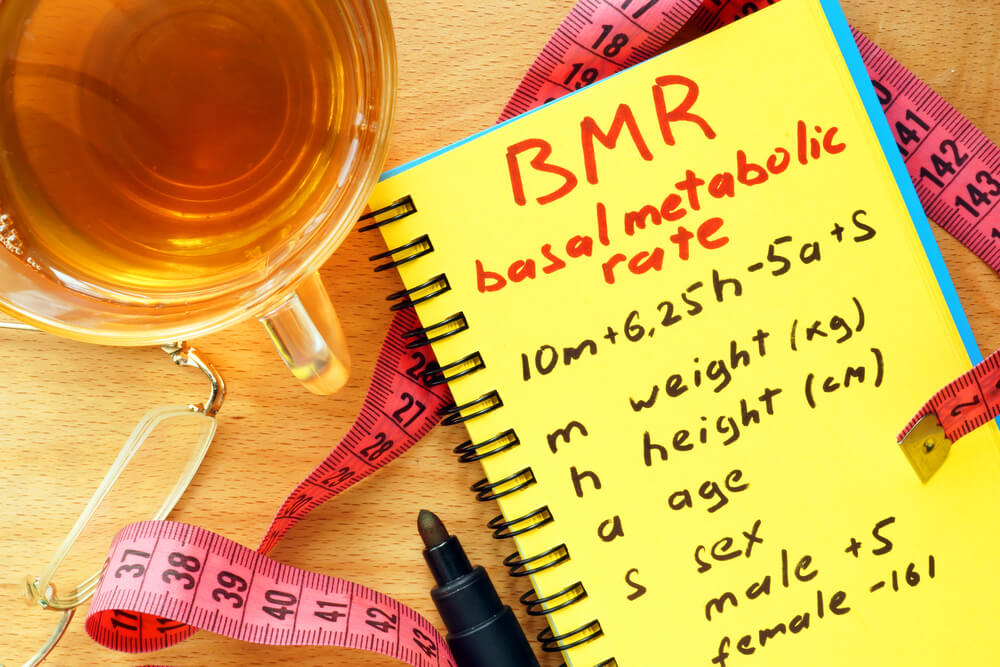
Wanna lose weight? It’s simple. Eat less, workout more.
Just think about the calories that go in your body and the calories that go out of your body…
What if you have a woman that weighs around 140 pounds, eating only 1,300 calories per day, working out about 6 – 7 hours each week, but they aren’t seeing any changes? Most weight loss and calorie numbers say that women should burn off about 2,000 calories every day. So why aren’t they seeing any results by eating so little, yet losing so little weight?
What should these people do?
Should they just stick with it and keep cutting back on calories? Add more workouts to their already busy schedule? Or is there something else they can do? What about looking into metabolic health?
First, let’s take a look into what metabolism is and why you should care about what it does. Next, we will look into how to speed up your metabolism. What is metabolism? Metabolism is a bunch of chemicals that take place in the body’s cells. Metabolism changes the food we eat into energy needed to power everything we do, from moving to thinking to growing. Some proteins in the body work with chemical reactions of metabolism and each chemical reaction works with other parts of the body.
But, there isn’t just one type of metabolism, there are actually two types. The first kind is called constructive metabolism, also known as anabolism. This is the blend of proteins, fats and carbs that build tissues and save up on energy. The second kind is called destructive metabolism, also known as catabolism. This is the break up of different substances, as well as energy and waste matter being produced.
Whenever we talk about metabolism, we usually look at the way the body uses different chemical ways to help split up a bunch of different substances and then make this energy ready for our cells to use.
Obviously, this is a pretty difficult part to understand since it is a long process. So let’s look at the most important part of it, the metabolic speed. But is there a difference between having a slow metabolism and having a fast metabolism? Well, it all goes back to the metabolic rate in the body which is simply the amount of energy your body uses to do activities that work with metabolism.
Basal metabolic rates do not include physical activity. It’s actually measured in the unit of calories. Basically, one calorie (or kilocalorie) is the level of heat needed in order to heat up one kilogram of water; which is one degree celsius. So, the faster your metabolism is, the more energy your body is going to burn so it can keep going. On the other hand, the less energy your body burns, the slower your metabolism is going to be. Make sense?
Here’s something that doesn’t make sense though. Surprisingly, a slower metabolism is actually more successful than a faster one because it doesn’t need as much energy. But, a slow metabolism still isn’t a good thing. So, do you still want to know how to speed up your metabolism?

Why Would You Want To Speed Up Your Metabolism?
Your body’s metabolic rate can be changed by many different things. Anything from fat mass to fat-free mass to age or even thyroid hormone circulation. Plus, some people are just a lot better at burning energy than other’s.
One study found some cool stuff by looking into basal metabolic rates. The study looked at rates as low as 1,027 calories every day and rates as high as 2,499 calories each day. The mean BMR was about 1,500 calories each day. There were a lot of ups and downs because of different levels of fat-free vs. fat mass, plus age and other types of problems. But, about 27% of inconsistency wasn’t able to be explained.
Another study showed that basal metabolic rates can be very different, even between those people that have the same levels of both fat mass and lean mass. These researchers said that, besides each person having close body types, the highest 5% MBR’s metabolized the person’s energy. What’s the difference between the two? 30% was the fastest and 5% was the lowest.
All in all, that’s what metabolism is and how it works. So how exactly does it tie in with weight loss?
You probably already know this, but the way that you get rid of fat is by feeding your body a lot less energy than it actually burns through in a day. Your body handles when you cut back in calories (also called calorie deficit) by going to those fat storage areas and getting the energy it needs to work and not getting it from the food you eat.
But where do all of these energy needs come from? Yes, you guessed it:
your metabolism.
Let’s take a look at man who weighs 180 pounds with a 10% body fat. This man has a healthy metabolism, meaning a healthy Basal Metabolic Rate of somewhere near 2,000 calories every day. As he keeps working out on a regular basis and stays active, he’s going to see his total daily energy increase to about 2,800 calories each day.
This means that 70% of the total energy for this healthy man’s daily energy still comes from good old metabolism.
This is the key to focus on metabolic health, especially when you’re trying to lose any weight.
Again, it does this by going over to those fatty areas. Yeah, sure you are getting some extra time in at the gym so you can have more energy and overall fat loss, but really the star of the show is your metabolism.
Here’s a simple way to talk about how it works. Basically, the slower your metabolism is the less food you’re going to have to eat. But don’t forget about working out! The slower your metabolism is, the more you will need to workout so you can lose weight. So the faster your metabolism is, the more you will be able to eat and less working out you will have to do. Are you with us so far?
I know it seems a little harsh but this might change the way you think when it comes to your health. Then, you can figure out if you have a fast metabolism or a slow metabolism.
A lot of people already know that in order to lose weight, they have to cut back on how much they are eating and get up and get moving. Plus, everyone wants to lose as much weight as they can and as fast as they can.
Points To Be Aware Of When You Speed Up Your Metabolism…
So what exactly is it that people do? A lot of them jump right in by cutting down their calories and bumping up their workouts. They do this many hours during the week. So yes this will help you lose weight in the for now, but it’s not going to workout in the long run. Why not?
Sooner or later, your metabolism will get used to the amount of energy you’re putting into your body from food. The goal is to make a balance with how much energy you put in vs. how much it takes out in order to keep homeostasis level.
So when you cut back on calories giving your body less energy, your metabolism starts to slow down and burn less energy. If you keep cutting down the amount of calories you eat, the faster and easier this is going to be.
As you might have guessed, the opposite is true. If you start feeding your body more, your metabolism takes matters into its own hands, which means it starts burning more energy.

Let’s look at someone who is majorly cutting back on calories. Their metabolism is going to slow down just enough to match the intake with the output, so it’s no surprise that the weight loss is going to stop. Generally, a lot of people cut calories even more or they add more energy if possible. This will make the metabolic slowdown once again and everything will need to be changed. Obviously, this can be a pretty annoying cycle, yet a lot of people do it.
There are a few simple things going on here. These people are basically crashing their metabolic rates. Then, they are going to eat more calories than they actually need to begin with. Their bodies will then store it up as fat. It’s as simple as that. So now you see how annoying this can be.
That’s why so many different people end up gaining weight and end up weighing more than they were in the very beginning. Plus now, they’re going to have a slower metabolism. If they choose to do this more than once, there will be problems. Basically, they will have to barely eat in order to keep a higher body fat percent.
This is called metabolic damage, which will weigh down the metabolic rate.
The good news is, it can be solved!
So How Do You Speed Up Your Metabolism?
Metabolic health is the key to losing weight. If you want to have a steady, smooth weight loss journey, you need your metabolism to be going full steam ahead before you start your workout plan.
While metabolism begins to get used to the food you eat, you need your weight to be pretty stable, with a higher amount of calorie intake every day. This all needs to be done before you start a caloric deficit.
Basically, you should already be watching your TDEE (total daily energy expenditure) without gaining a ton of weight before you start your journey.
If you aren’t there yet and you’re eating less than your TDEE and you aren’t seeing the numbers on the scale going down then your metabolism needs some work. You need to think about fixing this before you start your weight loss.
The key here is to be patient.
First what you do is start heavy resistance training. This should be weightlifting and it should be done 3 to 5 times each week. This will totally help with your metabolic rate. Short-term wise, it will speed up your metabolic rate because it burns up a ton of calories after your workout. Next, it builds muscle which helps to quicken up your metabolic rate for the longrun.
Next, slowly but surely eat more calories on a weekly basis until you have hit your TDEE. For you non-bodybuilders, this is called reverse dieting. Here’s how it works: start by having more calories (slowly) and your metabolism will keep up.
Next eat lots of protein because it will help your muscles grow. Aim for 1 gram of protein for every pound of body weight you have.
Conclusion
Another thing to keep in mind is the fact that you want your diet to have lots of dietary fat in it. It can actually boost testosterone, so your metabolic rate is going to speed up. Make about 30 – 35% of your daily calories come from this.
Having a healthy metabolism is the best thing when it comes to healthy weight loss results. Give yourself about a 2 to 3 month turnaround time and you’ll start seeing the results you want!
-Terry Asher
Terry
Latest posts by Terry (see all)
- How Important Are Net Carbs For Building Huge Muscle? - Apr 28, 2017
- The Matt Damon Workout Explained - Apr 27, 2017
- Watercress – Benefits And The Best Way To Consume It - Apr 26, 2017











[…] product is designed to help rev up your metabolism. It does fall under that third category of “calorie burner” supplement. Others might call it a […]
[…] The ketogenic diet is a scientific term used to indicate a very low carb diet. You’ll need good knowledge of how your body reacts to certain changes. A shift in your metabolism for energy production is a pretty big deal. People are always looking up how to speed up your metabolism. […]
[…] is because consuming food, in general, fires up your metabolism. If you eat frequently, you’ll keep your metabolism running—resulting in additional fat burn. […]
[…] might have a faster metabolism and growth potential than adults, but a select few display a particular knack for stacking […]
[…] might have a faster metabolism and growth potential than adults, but a select few display a particular knack for stacking […]